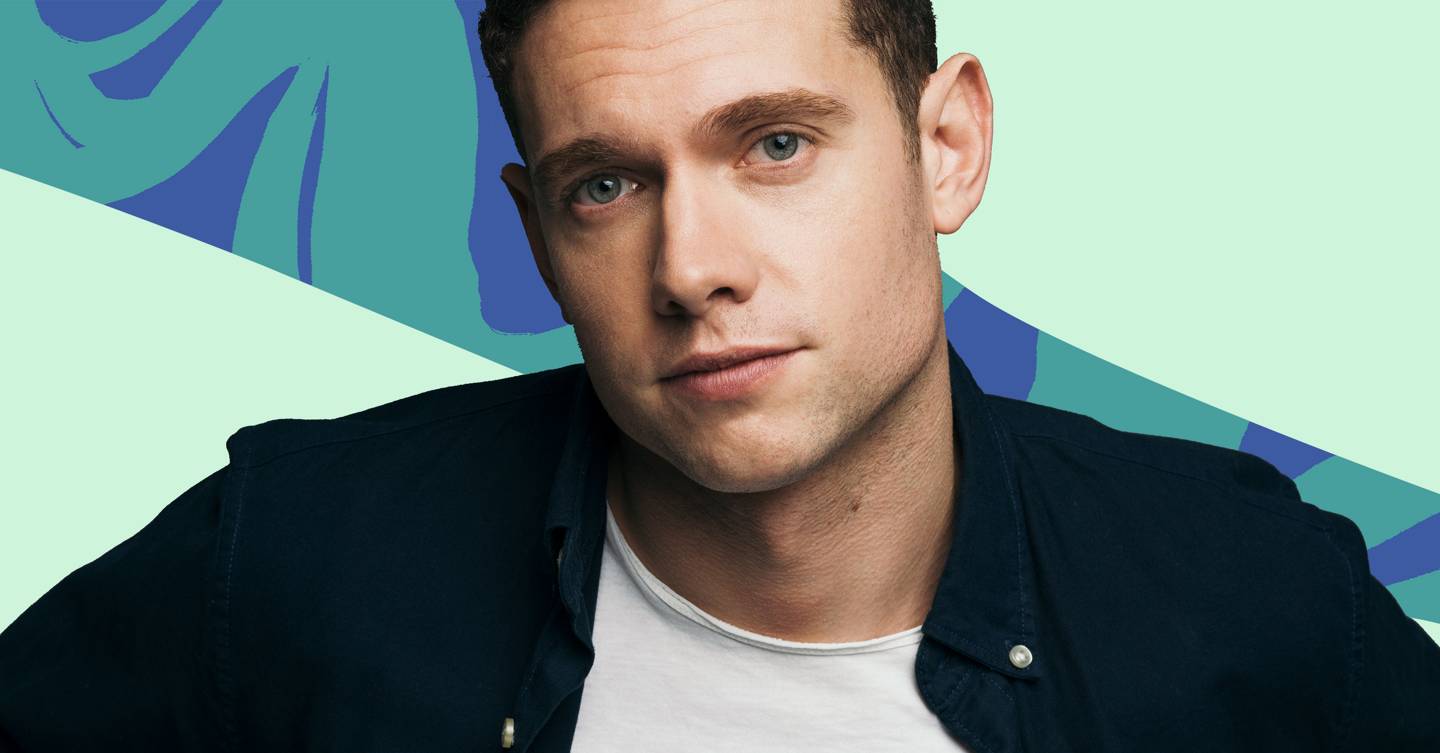Make Me Famous, created by Reggie Yates, is a dark warning not only about the pitfuls of reality TV and instant fame but also the lack of discussion around male mental health.
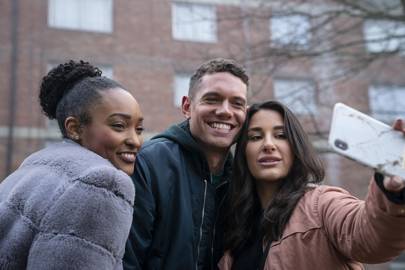
BBC Pictures
The new BBC TV show serves as a stark warning that if we don’t get men talking, many will suffer in silence. Here the show’s star, Tom Brittney who plays Billy, a man struggling with fame (or the lack of) a year after appearing on a reality TV show, talks about his own battles with body imageand the lasting conversations he hopes the show will create…
Make Me Famous is so rich in messaging. It discusses our relationships with social media, ambition, and mental health. What has your relationship with the idea of ambition been like for you?
I’ve always wanted to be an actor but having that ambition makes it all the more painful when it doesn’t come to reality. I didn’t have a plan B. I always kind of put all my eggs in one basket, hoping that this would work. Luckily, I’d like to think it’s working out, but it’s a tough journey, I think putting all your love and hope into your ambition.
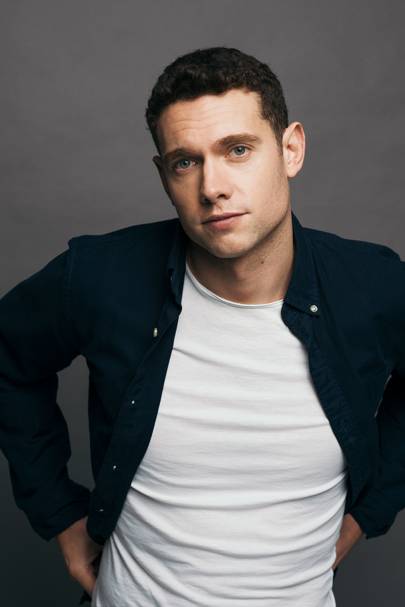
Joseph Sinclair
How do you deal with the constant roller-coaster of rejection and acceptance?
I think it’s one of the toughest things. Whenever I speak to younger actors and sort of without being too cynical I say that’s one of the hardest parts of the acting career – the bits in between the jobs, because you have to tell yourself, no matter how many times you get told no, you still will succeed. It is an odd thing to kind of do, to have to almost self-delude yourself into not going, “No, I’ve failed.” I had a hard time when I was working a lot, a couple of years ago, and it was all going really well and then suddenly I had a year out of work. That was horrible because everything seemed to be going in one direction and it just stopped. I was running out of money and my parents wanted to help me and I refused it. But that was a really humbling kind of period of time to know that it could just disappear but also that it can come back at any moment.
How do you deal with your own internal and external criticism?
Oh, boy. I mean, I am my biggest critic, always have been and I struggle a lot with that. No matter what other people tell you, it does really seem to affect you sometimes. I’m very insecure with the way that I look and I’ll beat myself up about performances. With Grantchester in particular, is one where that was the first time I got negative criticism. And luckily at the moment, it doesn’t bother me too much. It’s just me, I am the person criticising myself. It’s a very exposing thing, putting yourself out in television and performing and it never gets less scary.
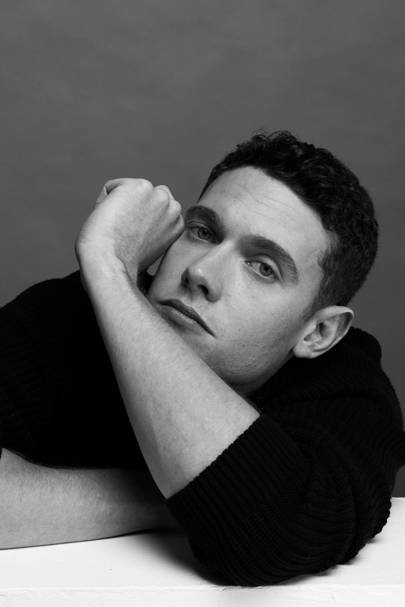
Joseph Sinclair
How have your physically insecurities played out?
Well, a couple of years ago, I got sort of diagnosed with body dysmorphia. It was something that I realised that I struggled with a lot through my life and sort of piecing together, like, “oh yeah, I used to take off days from school, because I just hated the way that I looked and thought that people would hate me for how I look.” It’s strange that I would then choose to go into something like acting, to go in front of an audience and put myself out there. But I guess it’s an overcompensation, and that’s always been a sort of struggle, especially when you’re playing roles that maybe your looks are important for. If your character is described as being good-looking, it puts a focus on how you look.
I think we live in a day and age where that’s probably getting worse for people as well. And I think that’s why I really was drawn to the show as well and related to the character, because I think it’s a very, very, very common problem that people have, whether you’re in the public or not. But when you are in the public eye, it’s under a lot more scrutiny than other people.
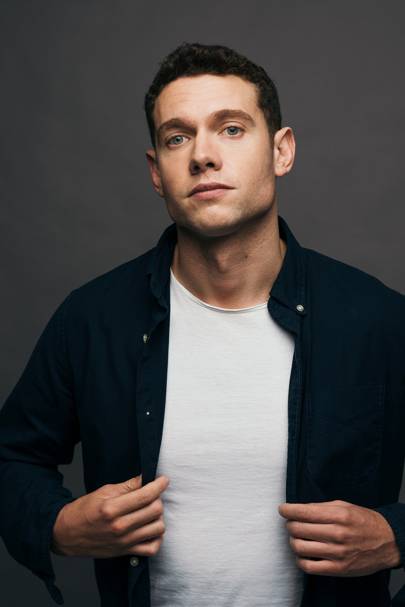
Joseph Sinclair
How important do you think that it is to show a more masculine character dealing with this level of mental health issues and life on screen?
I think it’s a really important discussion to have, especially with men. I think one thing that we’re still trying to navigate through is the idea of masculinity and how it’s changing. I think playing a character and showing the vulnerable sides of a person who’s trying to put on this alpha male bravado exterior, and then seeing the more vulnerable side, especially with a reality TV star, who we don’t often get to see that. I think that men still aren’t comfortable discussing their emotions enough and I think that’s something that we do need to explore more. I think we need to break down this idea that men can’t show emotion and show their fragility, because we’re all human. I encourage my friends to open up and chat, and for anyone – male or female – I think talking, whether it’s through therapy or just talking to friends, and being open with your emotions and accepting that we’re flawed has so much power.
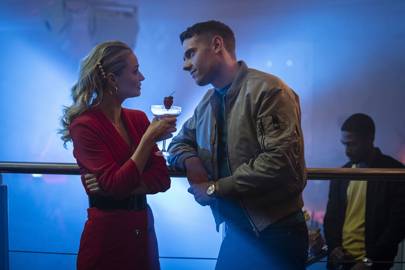
BBC Pictures
What kind of conversations do you want, Make Me Famous to start?
For me personally, I think the biggest thing is the social media aspects. I’d love for this to make people who watch it think twice and possibly never sending that potentially hateful tweet to someone, because they maybe now can see that there’s a human beneath that celebrity. I got a comment actually the other day on Twitter saying they’ve been guilty of sending comments to Love Island contestants before, and they weren’t going to do that anymore after seeing the show. That was exactly what we were hoping for.
There are people who have been driven to kill themselves because of stuff that’s been said to them online, and no one’s been held accountable. I don’t know if you always can, but with Caroline Flack, the amount of abuse that she was getting online, it was just terrible to see. I really hope that people just kind of take something from this, or just after we’ve gone through Corona, is just maybe be a little kinder.
Make Me Famous airs on BBC1 tonight and is available on BBC iPlayer now
